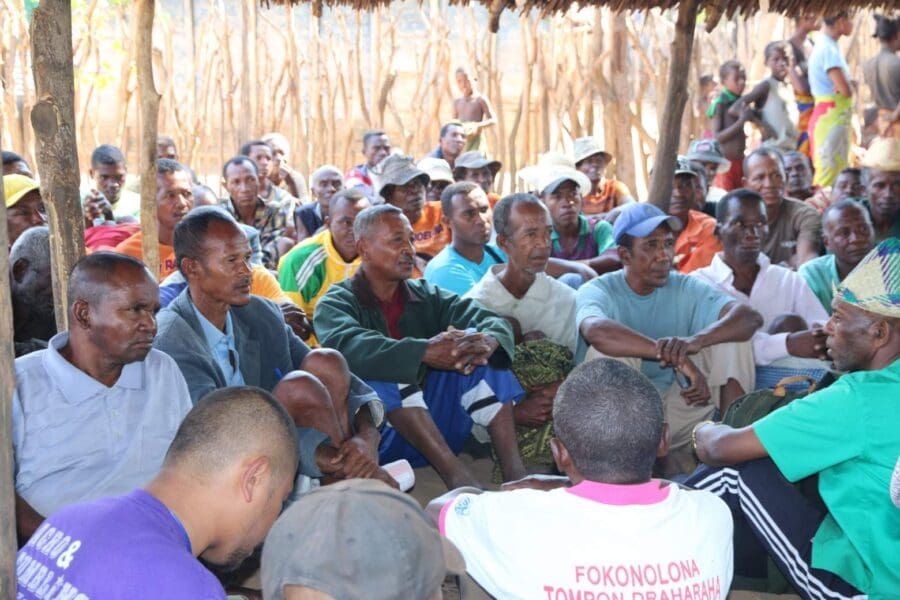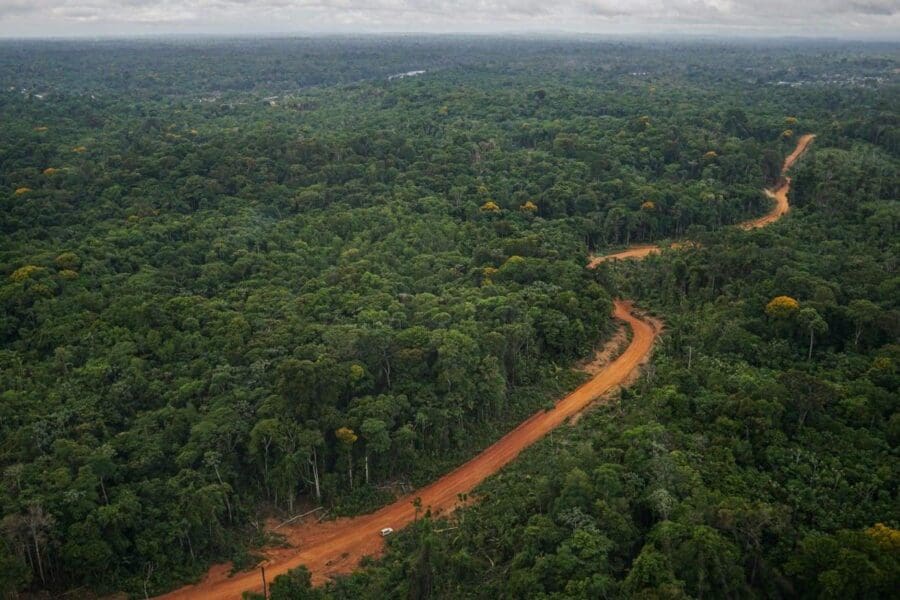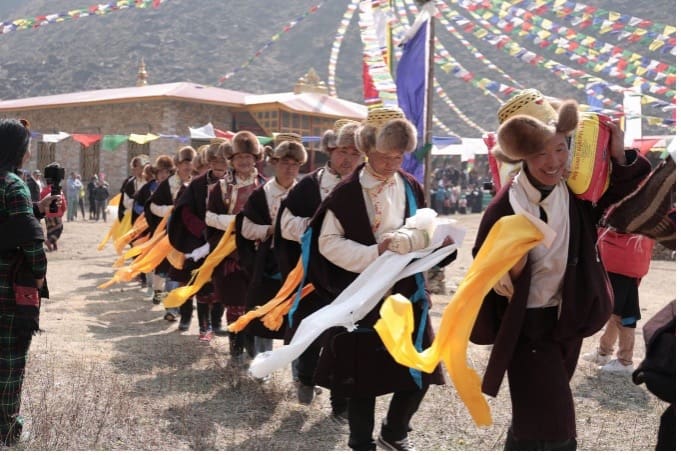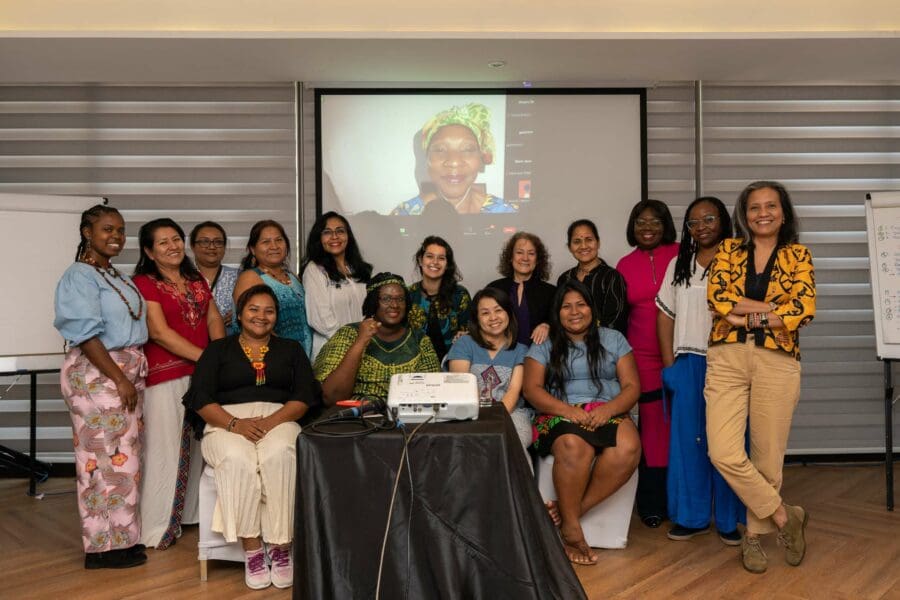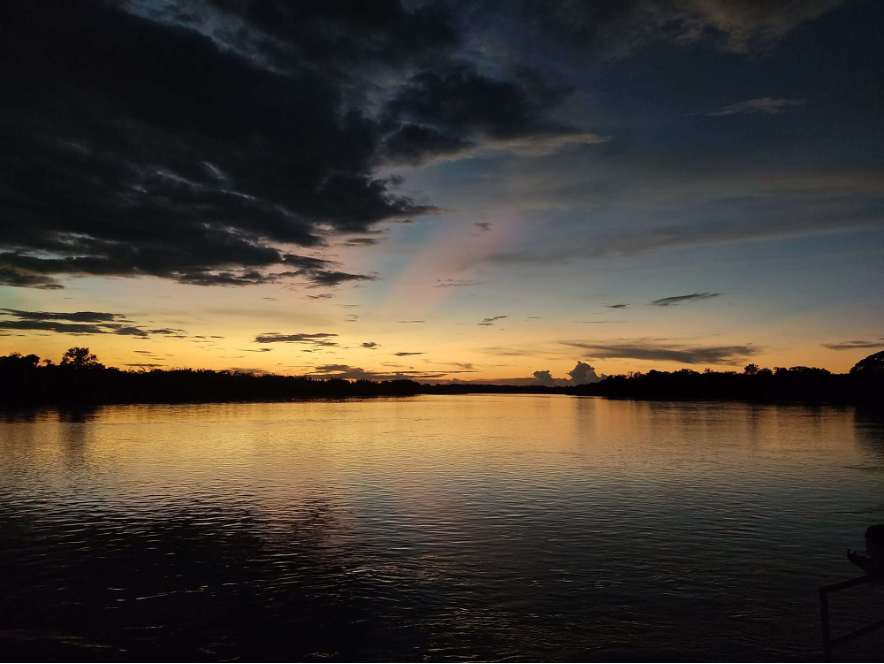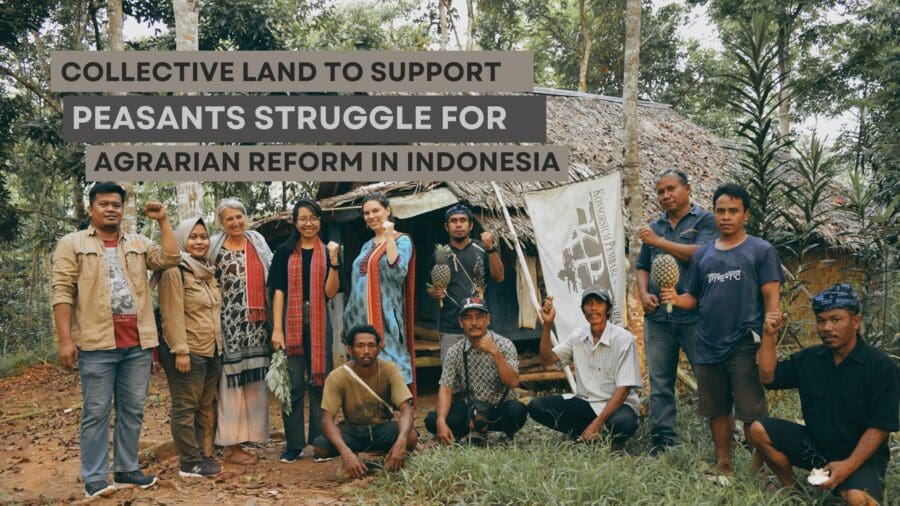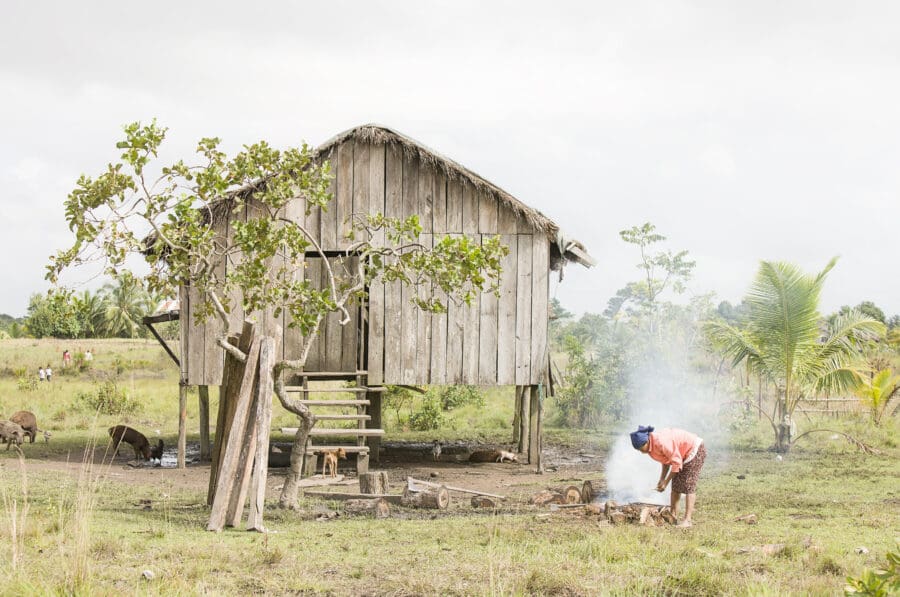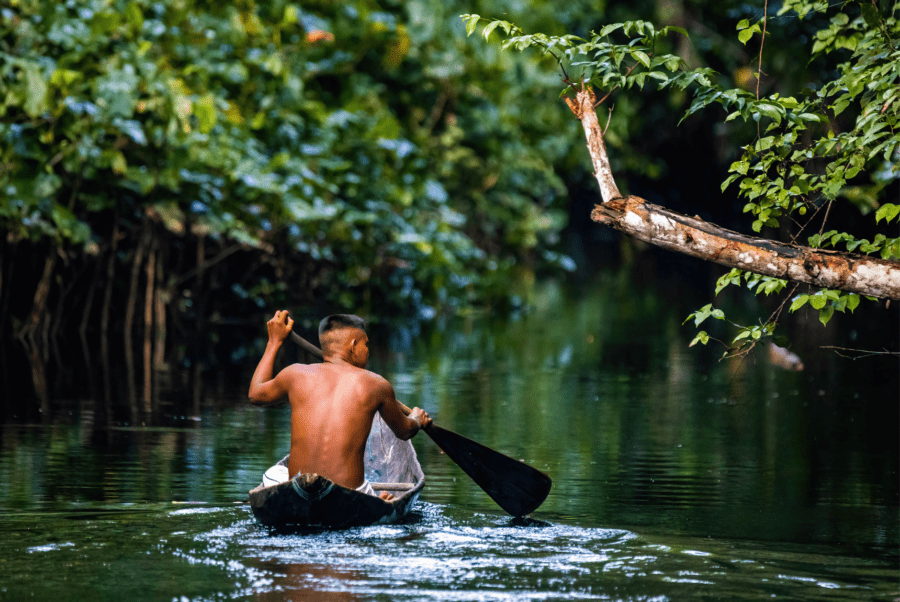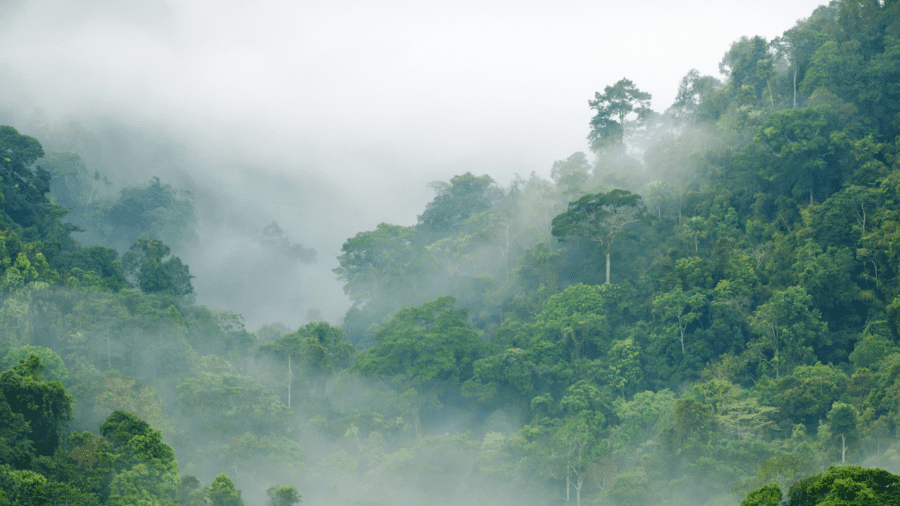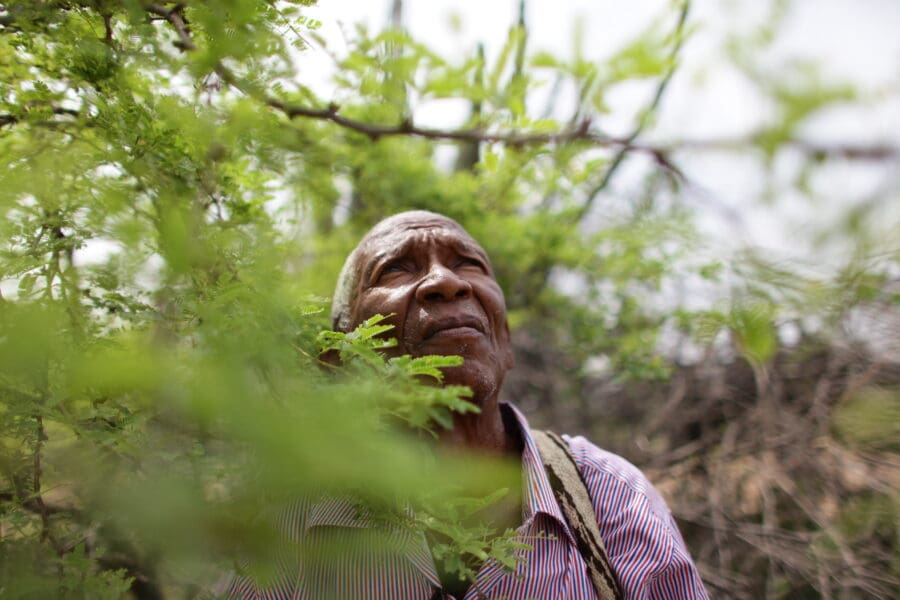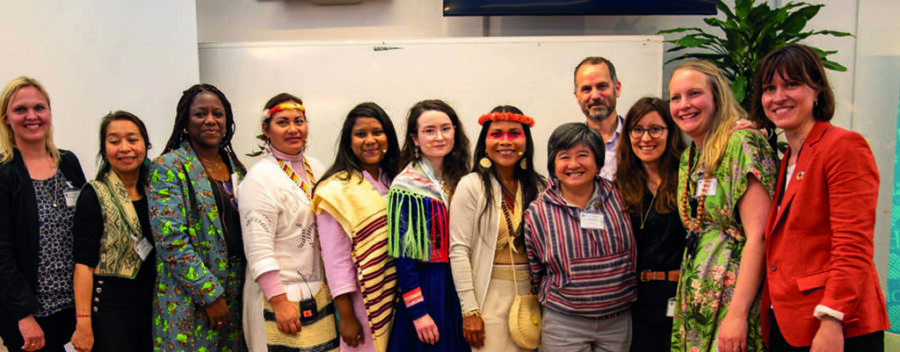For the first time, Madagascar's traditional communities, the FOKONOLONA, are being considered in the construction of the country's land reform. Find out how this breakthrough was made possible.
The Surinamese Government has allowed the construction of a large road and extensive logging in the Saamaka territory without local peoples' consent, in violation of orders from the Inter-American Court of Human Rights. We are calling on the international community to #StandWithSaamakaPeople to protect over 1 million hectares of the Amazonian rainforest.
Despite constant threats from extractive activities and drug trafficking, community councils of Afro-descendant Peoples from Buenaventura and Northern Cauca have successfully conserved the forest. This is their extraordinary story.
On 9 January 2024, Congress approved Law 31973—signed by Alejandro Soto and Waldemar Cerrón—which modifies Forestry Law 29763 of 2011. This modification will cause chaos in the management of Peru's forests and an acceleration of deforestation, going against global trends to limit climate change and biodiversity loss.
The recent release of the Second Edition of Who Owns the World’s Land? offers an important moment to take stock of the global state of Indigenous, Afro-descendant, and local community land rights recognition. The data in the report covers 73 countries, which cumulatively comprise 85% of the world's land area, and gives a comprehensive snapshot of the global landscape for community land rights at a critical moment for people and the planet. Here are five of the biggest takeaways from the report.
For more than 10 years, the LandWise Law Library has grown into an essential resource on family, land, and natural resource rights under the care of Landesa and Resource Equity. As Resource Equity closes its doors, RRI is thrilled to announce that it will carry the LandWise Law Library on through its next chapter.
RRI collaborators are celebrating two big victories for Indonesia’s agrarian reform movement this October. The Consortium for Agrarian Reform’s years-long advocacy with peasant and smallholder farmers has led to redistribution of two agrarian reform priority locations by the Indonesian Government, transferring their control to peasant and their union who have long reclaiming and managing these lands.
Co-authored with 15 organizations from across Asia—spanning youth groups, Indigenous networks, and ally organizations—this new report collates and brings to the fore the experiences and leadership of youth activists from across the continent into a call to action.
This October, the Democratic Republic of the Congo (DRC)’s National Assembly passed the country’s first-ever legislation on land-use planning. The historic bill’s passage is a result of years-long advocacy by civil society organizations led by RRI collaborator Centre for Innovative Technologies and Sustainable Development.
From September 12–14, 2023, the African Land Institutions Network for Community Rights (ALIN) will hold its 4th regional conference in Arusha, Tanzania. Land institutions from over a dozen countries will share lived experiences, opportunities, and challenges to further the community land rights agenda in Africa, with Indigenous and local community women, youth, and pastoralists taking center stage.

How the carbon market is affecting the territories of more than 200 families in the Ecuadorian Andes
Eight local communities in northern Ecuador are victims of so-called "green grabbing" by a private environmental services company. To defend their customary rights in the absence of collective land titles, the communities have launched an advocacy campaign with RRI’s support.
In Nepal, the local government of Gorkha District’s Tsum Nubri Rural Municipality recently adopted a new law to formally recognize and preserve the local community’s Shagya tradition of nonviolence.
Members of the new network agree to create more documentation on land rights and governance processes for Indigenous, Afro-descendant, and local community women; call for strengthening advocacy capacity.
The socio-environmental conflict in Los Pozos inspection of San Vicente del Caguán is unsustainable. The Chinese company, Emerald Energy Plc, repeatedly violates the country's environmental laws and the Colombian government continues to fail to intervene.
P2B, a peasants' organization based in Banten, Indonesia, is a leading actor in the local struggle for agrarian reform and collective land tenure rights.
Nepal's Indigenous Tsum Nubri community achieves a key legislative victory in maintaining traditional methods of forest governance.
RRI marked the beginning of 2023 with a global dialogue on Rights-Based Conservation and Climate Approaches, co-hosted with the Embassy of Sweden in Washington DC.
On December 6, RRI, the Conservation through Reconciliation Partnership (CRP), and the ICCA Consortium—in partnership with the Canadian Research Chair in Human Rights, Health, and the Environment, Montreal International and the Christensen Fund—will co-host a pre-COP15 dialogue on Indigenous and community leadership in conservation.
This keynote address was shared in person on July 21, 2022 at the IUCN Africa Protected Areas Congress in Kigali, Rwanda. Patrick calls on governments to leverage the cultural diversity of Africa to craft new conservation models that legally recognize and secure the tenure rights of Indigenous Peoples and local communities as a just and viable solution to the global biodiversity crisis.
November 14 marks Gender Day and Water Day at CoP27 in Sharm-El-Sheikh, Egypt. We must take a moment to recognize how Indigenous, Afro-descendant, and local community women and girls are leaders in climate change mitigation and adaptation and integral to attaining the UN's 2030 Sustainable Development Agenda.
RRI is excited to announce the launch of its new online Tenure Tool. This platform, hosted on RRI’s website, will give rightsholders, researchers, activists, policymakers, and the public free and easy access to qualitative and quantitative data on the forest tenure rights of Indigenous Peoples, Afro-descendant Peoples, local communities, and the women within those communities.
At CoP26 in Glasgow, 22 donors made a historic commitment to contribute $1.7 billion to support Indigenous Peoples’ and local communities’ rights to their lands and forests. Almost one year later, questions abound over the Pledge’s disbursement, impact, and accessibility.
Following more than three years of investigation into the armed conflict in Colombia, the Truth Commission, which was created by the signing of the peace agreement between the government and the Revolutionary Armed Forces of Colombia (FARC) in 2016, published the first chapter of its final report on June 28, 2022. This blog post looks at some of its key findings and testimonies.
The Stockholm+50 associated event aimed to highlight the role and importance of Indigenous peoples and local communities in safeguarding the world’s forests, ecosystems, and biodiversity. The event was one of three collaborative events held on June 1st at Sida ahead ofStockholm+50, co-arranged by Sida, The Tenure Facility, SwedBio, The Rights and Resource Initiative, and the Focali – SIANI Dialogue Forum.

